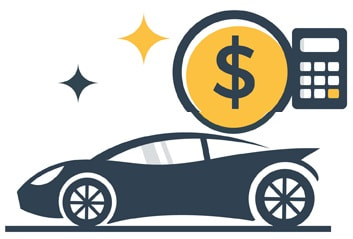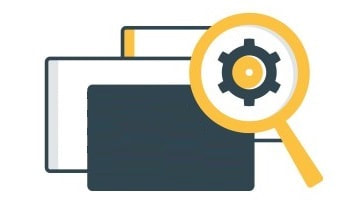How to Save for a Car (and Avoid Car Finance)
This guide highlights how to save for a car. Saving takes planning and a commitment to follow through, but it gives you the power to minimise the costs and maximise your options.
Updated 1 February 2024
Summary
Know this first: Cars are, arguably, a money trap. Many New Zealanders earn $100,000+ and drive used cars they bought for less than $5,000. Financing a car holds you back financially - ultimately, you need a car to get you from A to B. The money you save from being sensible and buying an affordable car will help you get ahead with investments, home deposits, etc.
- Owning a car is a significant financial commitment - insurance, WOF, petrol and depreciation all add up. However, buying a car can be very expensive if you overpay and/or get unaffordable financing.
- We have written this guide for young New Zealanders looking to get on the road for work purposes and minimise the costs of doing so. While car finance is widely used throughout New Zealand, saving up and making sacrifices is always more cost-effective and hassle-free.
Know this first: Cars are, arguably, a money trap. Many New Zealanders earn $100,000+ and drive used cars they bought for less than $5,000. Financing a car holds you back financially - ultimately, you need a car to get you from A to B. The money you save from being sensible and buying an affordable car will help you get ahead with investments, home deposits, etc.
MoneyHub Founder Christopher Walsh shares his story about car ownership:
|
My first car, at the age of 22, was a $2,000 Subaru Legacy. It ran beautifully, was cheap to fuel (even by today's standards) and was sold after four years for around $2,000. Although a new clutch cost about $800 to put in after a couple of years, I treated it well. It was a great car, and there are many used Japanese cars for sale right now. My parents have only bought second-hand cars in the last twenty years, except for an ex-demo KIA they got for a "bargain".
Buying a car to impress people is quite common, but I believe it's a mistake. Some of the wealthiest and happiest people in New Zealand drive old Japanese and Korean cars. It's perfectly reasonable to want to have flash wheels, but the reality is that "keeping up" costs can be crippling. If this is you, please think twice - happiness is found from being economical. If I bought a car tomorrow, it would be a well-trusted Japanese model that is 10-15 years old. And I know I'd get a great deal. |
Christopher Walsh
MoneyHub Founder |
|
Christopher Walsh
MoneyHub Founder |
MoneyHub's Top Car Finance Options - Avoid high interest rates and fees with trusted lenders.
Our Top Trusted and Affordable Car Lenders Committed to Fast Quotes:
|
The Ten Steps to Save for a Car (and Must-Know Considerations):
Step 1: Plan for the purchase in advanceSaving for a car is a short-term savings goal. The starting point is estimating what a new car is going to cost. For example, if you budget $8,000 for a car and you'll need it in six months, you'll need to save about $1,350 a month - this is easier said than done. Cashing out an investment or working extra hours are both options that avoid car finance and leave you in a stronger position.
Know This: The steps below help you consider about the urgency of a car, and what car to buy which you can do after you start saving. As your intention is to purchase a car, saving a realistic amount per month is the first step. |
Step 2: Challenge whether or not you can afford the car you want to buy right nowGenerally, if you can't afford to pay cash for a car, it's arguable that you can't afford the car at all. Many New Zealanders continue to drive older cars that are reliable - these tend to be Japanese cars that have a proven track record and can be found on Trade Me for $2,000+.
Know This: Many financially secure New Zealanders only replace their car when it is involved in an accident or becomes uneconomic to maintain and repair. However, a car will last a long time if it's maintained well. Servicing may be a regular expense, but it keeps a car healthy and maintains its resale value. |
Step 3: Hold off buying a car until you absolutely need oneAnyone in a rush for a car risks overpaying. Right now, in a post-COVID car market, the prices are inflated due to ongoing supply chain issues. In economic terms, less supply and the same demand equals higher prices.
Our View: Once the usual supply channels open up again, prices will drop. If you can wait and don't need a car urgently, you'll likely have more buying power. |
Step 4: Consider Paying for a Car "interest-free"If you need a car right now and have a solid credit history, there is one "insiders tip" you may want to consider. The process is as follows:
Important: This only works when you have a stable financial situation. It's important to mention that, in most cases, you won't be able to transfer the balance to a credit card issued by a bank you already have a credit card with. For example, if you're an ASB customer, you will need to find a balance transfer deal offered by a bank with which you don't have a relationship. |
Step 5: Consider leasing for short-term needsCar leases aren't that popular in New Zealand, mainly because they're misunderstood. Our guide to car leasing has more details. The advantage is you can set a budget and avoid worrying about mechanical breakdowns and repairs. Leasing does involve kilometre restrictions per year, and you are responsible for routine maintenance. However, leasing costs (beyond the monthly fee, insurance and fuel) are predictable and can be budgeted accurately.
|
Once you've considered your options and decide to buy a car, we suggest the following course of action:
Step 6: Consider a car will low maintenance costs, cheap insurance and economical fuel consumptionOur guide to cars that have below-average insurance costs can be found here. This Stuff.co.nz article explores fuel consumption costs, as does this Trade Me guide. While some 4WD hold their value over time, the costs of operating can be high.
|
Step 7: Set up an emergency fundRunning a car is affordable, but breakdowns and repairs can become financial pains. If your car won't operate and you can't afford repairs, your options become limited, and solutions are expensive.
The best idea to avoid repair cost misery is to set up a savings account via online banking and auto-pay into it every payday. Even $50/month will add up and help cover brake repairs, new tyres and other common mechanic bills. So while it's $50/month or $100 a month you won't enjoy now, the money is there later on when you need it. Avoiding credit cards and short-term loans is almost guaranteed. |
Step 8: Set up a car depreciation fundTo give yourself security, dividing the cost of the car by how long you think you'll use it (i.e. years) is a good starting point.
For example, if you spent $8,000 on a car and plan to drive it for five years, then that's 60 months. You'll need to contribute around $135 a month to save. This calculation ignores the sale price when you change cars later on, but that can be used to top up what you need for the new purchase; again, an online savings account titled "Next Car" or similar will mean you have a nest egg when you need it and avoid car finance. |
Step 9: Eliminate ongoing car costsSaving for your next car is easier when you eliminate ripoffs and bad habits. Our list of 20+ tips includes:
|
Step 10: Don't buy a car to impress anyoneThis is VERY important. Many people measure "success" based on the model of your car. This is a trap - some of the wealthiest and happiest people in New Zealand drive old Japanese cars. It's perfectly reasonable to want to have flash wheels, but the reality is that "keeping up" costs can be crippling. Many New Zealanders get into terrible financial situations with unaffordable cars - repayments, repairs, and insurance add up quickly.
|
Best Car Finance
Popular Comparisons
Popular Guides
Car Finance Company Reviews:
Car Loan Insurance
Popular Comparisons
- Personal Loan vs Car Loan - What is Better for Buying a Car?
- Car Dealership Finance vs Alternative Finance
Popular Guides
- Car Loans and Collateral
- Bad Credit Car Loans
- Balloon Payments
- How to Refinance Your Car Loan
- Car Loan Refinance Calculator
Car Finance Company Reviews:
- Better Finance Review
- Kiwi Car Loans Review
- MTF Finance Review
- Simplify Loans Review
- Car Loan Brokers vs Direct Car Finance Companies
Car Loan Insurance



















